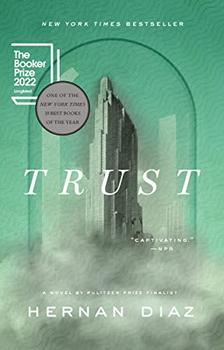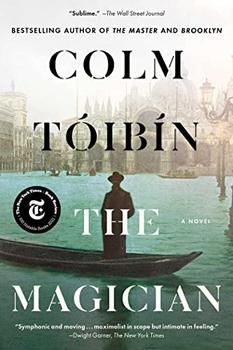Summary | Excerpt | Reviews | Beyond the book | Read-Alikes | Genres & Themes | Author Bio

From one of contemporary literature's most exciting new voices, a haunting story centered on the Hungarian polymath John von Neumann, tracing the impact of his singular legacy on the dreams and nightmares of the twentieth century and the nascent age of AI
Benjamin Labatut's When We Cease to Understand the World electrified a global readership. A Booker Prize and National Book Award finalist, and one of the New York Times' Ten Best Books of the Year, it explored the life and thought of a clutch of mathematicians and physicists who took science to strange and sometimes dangerous new realms. In The MANIAC, Labatut has created a tour de force on an even grander scale.
A prodigy whose gifts terrified the people around him, John von Neumann transformed every field he touched, inventing game theory and the first programable computer, and pioneering AI, digital life, and cellular automata. Through a chorus of family members, friends, colleagues, and rivals, Labatut shows us the evolution of a mind unmatched and of a body of work that has unmoored the world in its wake.
The MANIAC places von Neumann at the center of a literary triptych that begins with Paul Ehrenfest, an Austrian physicist and friend of Einstein, who fell into despair when he saw science and technology become tyrannical forces; it ends a hundred years later, in the showdown between the South Korean Go Master Lee Sedol and the AI program AlphaGo, an encounter embodying the central question of von Neumann's most ambitious unfinished project: the creation of a self-reproducing machine, an intelligence able to evolve beyond human understanding or control.
A work of beauty and fabulous momentum, The MANIAC confronts us with the deepest questions we face as a species.
At once historian, biographer, philosopher, and poet, Labatut is adept at eloquently communicating complex ideas in an accessible but not overly simplified style. The MANIAC will appeal to a wide variety of people, from those knowledgeable about math and physics to those, like this reader, with a decidedly more humanities-based education. Labatut creates fully fleshed actors and brings events from the past into sharp, clear focus...continued
Full Review
(754 words)
This review is available to non-members for a limited time. For full access,
become a member today.
(Reviewed by Danielle McClellan).
 The title of Benjamin Labatut's novel The MANIAC refers to the computer—the fastest of its kind at the time—developed by the Hungarian American physicist John von Neumann. During the Second World War, von Neumann was a consultant on the Manhattan Project at Los Alamos, New Mexico, where he focused on the detailed mathematical calculations needed to design the atomic bomb.
The title of Benjamin Labatut's novel The MANIAC refers to the computer—the fastest of its kind at the time—developed by the Hungarian American physicist John von Neumann. During the Second World War, von Neumann was a consultant on the Manhattan Project at Los Alamos, New Mexico, where he focused on the detailed mathematical calculations needed to design the atomic bomb.
According to the Los Alamos National Laboratory, when the site was first opened in 1943 as a secret lab for creating atomic weapons, most of the calculations were done manually by women, often with degrees in the sciences or mathematics: "The human computers and a collection of IBM punched-card machines conducted the numerical simulations that made it ...
This "beyond the book" feature is available to non-members for a limited time. Join today for full access.

If you liked The MANIAC, try these:

by Hernan Diaz
Published 2023
An unparalleled novel about money, power, intimacy, and perception.

by Colm Toibin
Published 2022
From one of today's most brilliant and beloved novelists, a dazzling, epic family saga centered on the life of Nobel laureate Thomas Mann, spanning a half-century including World War I, the rise of Hitler, World War II, and the Cold War.
There is no such thing as a moral or immoral book. Books are either well written or badly written. That is all.
Click Here to find out who said this, as well as discovering other famous literary quotes!